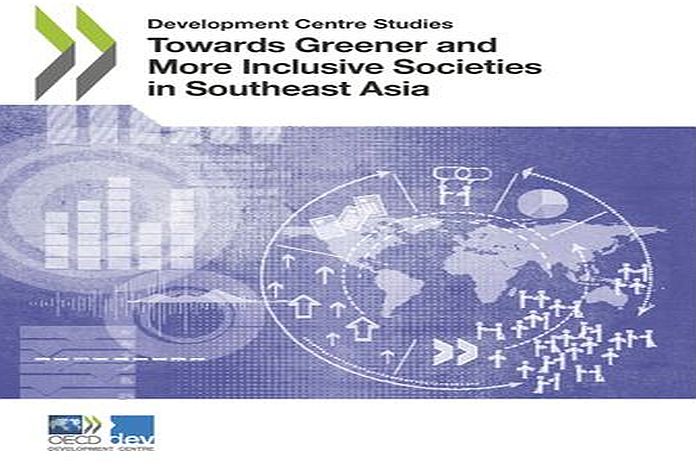Transitioning to greener and more sustainable growth models can provide a massive boost to employment in Southeast Asia

PARIS, France – Southeast Asia, a region grappling with environmental challenges and the effects of climate change where one in three workers rely on natural resources to sustain their livelihoods, would see large employment gains from transitioning to sustainable agriculture and to renewable sources of energy, according to a new OECD Development Centre report.
“Towards Greener and More Inclusive Societies in Southeast Asia” finds that, for instance, in Indonesia, the world’s largest exporter of coal, transitioning towards cleaner energy production could potentially create more than one million new jobs. Transitioning to more sustainable agricultural practices can have similar effects. Expanding organic rice farmland to 5 percent of total rice farmland in the region could create 5.4 times more direct jobs than an equivalent land size expansion of conventional rice farmland.
The transition will allow the region to continue fuelling its economic growth, which is reliant on nature-related activities. Currently, over 100 million workers in the region have jobs that are directly or closely linked to the environment, many of which are vulnerable to environmental degradation. Southeast Asia has lost 15 percent of its forest area since 1990, a pattern primarily driven by land clearing for agriculture. And three-quarters of Southeast Asia’s total energy supply currently relies on fossil fuels, mainly coal.
The main challenge will be protecting workers who will lose their jobs in fossil fuel-related activities and providing social protection to workers in nature-related sectors, such as agriculture, mining and water and waste management, of whom 90 percent are in the informal economy.
“The green transition will bring new opportunities to boost economic growth and lift living standards in Southeast Asia, a region that is both strongly dependent on nature for its economic activities and heavily impacted by climate change,” OECD Secretary-General Mathias Cormann said. “Some sectors will create jobs, some will lose jobs, and others will disappear. Enhancing social safety nets, providing reskilling and upskilling opportunities, and planning for new territorial development models for regions dependent on fossil-fuel related activities will be essential for a smooth transition.”
In this context, the report highlights three key actions to ensure a fair and effective green transition:
- Protecting vulnerable workers by strengthening social protection programmes such as universal healthcare, unemployment insurance and cash transfer schemes;
- Planning for local development and economic diversification in the most affected geographic areas, and;
- Anticipating how the green transition will affect jobs and plan for skill development and reallocation measures. In the agriculture sector, both adaptation and mitigation measures in the form of skills training, technology transfers and new market opportunities will be necessary.
Source: caribbeannewsglobal.com

